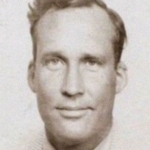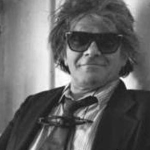“The cure for loneliness is solitude.”
—Marianne Moore
Hopper never painted this, but here
on a snaky path his vision lingers:
three white tombs, robots with glassed-in faces
and meters for eyes, grim mouths, flat noses,
lean forward on a platform, like strangers
with identical frowns scanning a blur,
far off, that might be their train.
Gas tanks broken for decades face Parson’s
smithy, planked shut now. Both relics must stay.
The pumps have roots in gas pools, and the smithy
stores memories of hammers forging scythes
to cut spartina grass for dry salt hay.
The tanks have the remove of local clammers
who sink buckets and stand, never in pairs,
but one and one and one, blank-eyed, alone,
rakes in the shallows, then bends to receive
last rays in shimmering water, her long shadow
knifing the bay. She slides into her truck
to watch the sky flame over sand flats, a hawk’s
wind arabesque, an island risen, brown
Atlantis, at low tide; she probes the shoreline
and beyond grassy dunes for where the land
might slope off into night. Hers is no common
emptiness, but a vaster silence filled
with terns’ cries, an abundant solitude.
Nearby, the three dry gas pumps, worn
survivors of clam-digging generations,
are luminous, and have an exile’s grandeur
that says: In perfect solitude, there’s fire.
One day I approached the vessels
and wanted to drive on, the road ablaze
with dogwood in full bloom, but the contraptions
outdazzled the road’s white, even outshone
a bleached shirt flapping alone
on a laundry line, arms pointed down.
High noon. Three urns, ironic in their outcast
dignity—as though, like some pine chests,
they might be prized in disuse—cast rays,
spun leaf—covered numbers, clanked, then wheezed
and stopped again. Shadows cut the road
before I drove off into the dark woods.

















Comment form: